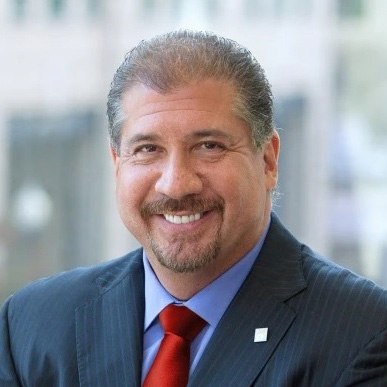Committee Charter
Mission
The purpose of the Board of Directors’ Audit Committee is to assist the Board in its oversight of:
- The independent registered public accounting firm’s qualifications and independence;
- The performance of the corporation’s internal audit function and independent registered public accounting firm;
- Management’s responsibilities to ensure that there is an effective system of controls reasonably designed to:
- Safeguard the assets and income of the corporation,
- Ensure the integrity of the corporation’s financial statements, and
- Maintain compliance with the corporation’s ethical standards, policies, plans and procedures, and with laws and regulations.
In addition, the Audit Committee (i) oversees reputational risks and conduct risks within its scope of responsibility, and (ii) is designated as the fiduciary audit committee required by 12 C.F.R. § 9.9 for national bank subsidiaries with authorized fiduciary powers.
Membership
- The Audit Committee shall be comprised solely of non-management directors, not fewer than three in number.
- Each member of the Audit Committee shall meet the independence standards and expertise requirements of the New York Stock Exchange corporate governance listing standards, the Securities Exchange Act of 1934 and rules promulgated thereunder, the Federal Deposit Insurance Corporation Improvement Act of 1991 (FDICIA), and other applicable laws and regulations, in each case, as of the Firm’s most recent annual meeting. In particular, each member of the Committee shall be financially literate and at least one member of the Committee shall be deemed an “audit committee financial expert” as defined by the Securities and Exchange Commission.
- Membership on the Audit Committee is reviewed each year by the Corporate Governance & Nominating Committee and approved by the Board, which also designates a Chair for the Committee. Each Audit Committee member and Chair serves at the pleasure of the Board.
Meetings
- The Audit Committee shall meet as often as it determines, but not less frequently than eight times per annum. The Chair shall preside at all meetings of the Committee and shall set the agenda.
- The Audit Committee shall meet periodically with the Chief Audit Executive , the independent registered public accounting firm, and executive management in separate private sessions to discuss any matters that the Audit Committee or these persons believe should be discussed. Such sessions shall generally be held in conjunction with regularly scheduled meetings of the Audit Committee.
- The Audit Committee may also meet periodically in separate executive sessions.
- The Audit Committee may request any officer or employee of the corporation or the corporation’s outside counsel or independent registered public accounting firm to attend a meeting of the Audit Committee or to meet with any members of, or consultants to, the Audit Committee.
- The Audit Committee has authority to retain outside legal counsel, or accounting or other advisors, when deemed necessary, including authority with respect to approval of fees and terms of retention, without the prior permission from the corporation’s Board of Directors or management, and shall be provided the necessary resources for such purposes.
- The Audit Committee shall report periodically to the Board, generally at the next regularly scheduled Board meeting following an Audit Committee meeting, on actions taken and significant matters reviewed by the Audit Committee.
Duties and Responsibilities
The Audit Committee shall have the following duties and responsibilities:
A. Oversight of the corporation’s relationship to internal audit and independent registered public accounting firm.
- The independent registered public accounting firm for the corporation is accountable to the Board of Directors and Audit Committee of the corporation, as representatives of the stockholders, and shall report directly to the Audit Committee.
- The Audit Committee shall have the authority and direct responsibility to appoint, retain, compensate, evaluate and, where appropriate, replace the independent registered public accounting firm (subject to stockholder ratification if required or sought by the Board of Directors), and shall advise the Board of Directors on these matters.
- The independent registered public accounting firm shall submit, at least annually, a written report to the Audit Committee regarding:
- The auditor’s internal quality-control procedures.
- Any material issues raised by the most recent Public Company Accounting Oversight Board inspection, peer review, or independent registered public accounting firm internal quality control review or by any inquiry or investigations by governmental or professional authorities within the preceding five years respecting one or more independent audits carried out by the audit firm, and any steps taken to deal with such issues.
The independent registered public accounting firm shall also submit such a report to the Audit Committee promptly after any review, inquiry or investigation referred to in the preceding sentence.
- The independent registered public accounting firm shall also submit on a periodic basis, but at least annually, to the Audit Committee a formal written statement delineating all relationships between the audit firm and the corporation, including each non-audit service provided to the corporation and at least the matters set forth in Public Company Accounting Oversight Board Rule 3526.
- The Audit Committee shall discuss with the independent registered public accounting firm whether any disclosed relationships or services, or any other factors, may impact the objectivity and independence of the independent registered public accounting firm, and shall recommend to the Board that it take appropriate action to satisfy itself of the independence of the independent registered public accounting firm.
- The Audit Committee shall have authority to approve all fees and terms of engagement of the independent registered public accounting firm and shall pre- approve, or adopt appropriate procedures to pre-approve, all audit and non-audit services to be provided by the independent registered public accounting firm.
- The Audit Committee shall set clear hiring policies for employees or former employees of the independent registered public accounting firm and for audit partner rotation in compliance with applicable laws and regulations.
- The Audit Committee shall consider whether, in order to ensure continuing auditor independence, there should be a regular rotation of the independent registered public accounting firm.
- The Chief Audit Executive shall functionally report directly to the Audit Committee and administratively to the Chief Executive Officer.
- The Audit Committee shall consult with the CEO and shall approve the appointment, evaluation, replacement, reassignment, or dismissal of the Chief Audit Executive. The Audit Committee or its Chair shall consult with the CEO and the Compensation & Management Development Committee or its Chair and shall approve the compensation, non-financial performance objectives and succession planning of the Chief Audit Executive. The Audit Committee shall also review the performance and approve the succession planning of the Chief Audit Executive’s direct reports and the Global Head of Credit Review.
- The Audit Committee shall annually review and approve the charter of the internal audit function, and the Chief Audit Executive’s proposed annual risk-based audit plan, financial budget and resources, and overall risk-assessment methodology, and shall approve any significant interim changes to the foregoing. The Audit Committee shall also annually review the independence of the Internal Audit function.
- The Audit Committee shall receive periodic communications from the Chief Audit Executive on the completion status of the annual risk-based audit plan, including any significant changes and the impact of resource limitations.
- The Audit Committee shall receive, at least annually, communications from the Chief Audit Executive on the internal audit function’s quality assurance and improvement program, and shall review and approve any plan by the Chief Audit Executive for an external quality assessment and related action plans, as well as the qualifications and independence of any external assessor, including any potential conflicts of interest.
- The Chief Audit Executive shall obtain approval from the Audit Committee for any significant internal audit outsourcing engagements.
- The Audit Committee shall discuss with management and the independent registered public accounting firm, and resolve, any disagreements between the auditors and management regarding financial reporting.
- The Audit Committee shall review with the independent registered public accounting firm any audit problems or difficulties and management’s response thereto.
- The Global Head of Credit Review shall report up to the Chief Audit Executive and shall have access to communicate with the Audit Committee on any matter relevant to Credit Review. The Audit Committee shall receive quarterly reporting on the Credit Review results and shall annually review and approve the firm’s credit risk review policy and scope of the credit risk review.
B. Control oversight responsibilities
The Audit Committee shall:
- Receive, periodically, from the Chief Audit Executive and from management of each line of business and corporate function (including Risk and Compliance), as appropriate, communications and presentations on trends and emerging issues, significant control issues in internal audit reports, management letters, and regulatory authorities’ examination reports, and such other significant control matters that are identified by the relevant line of business or corporate function, as appropriate, and the resolution status thereof.
The Audit Committee may initiate such other inquiries into the affairs of the corporation as it deems necessary or appropriate.
- Receive periodic presentations from management and the independent registered public accounting firm on:
- The identification and accountability for resolution of material weaknesses in the internal control environment and any significant deficiencies in the design or operation of internal controls that could adversely affect the corporation’s ability to record, process, summarize and report financial data.
- Any fraud, whether or not material, that involves management or other employees who have a significant role in the corporation’s internal controls.
- Receive periodic presentations, but not less frequently than annually, from the Chief Audit Executive on the review, and related results, of each Operating Committee member’s expense account and perquisites, including their use of corporate assets.
- Establish procedures for the receipt, retention and treatment of complaints received by the corporation regarding accounting, internal accounting controls or auditing matters, and for the confidential, anonymous submission by corporation employees of concerns regarding questionable accounting or auditing matters.
- Review the program established by management that monitors compliance with the Code of Conduct and reviews the record of such compliance.
- The Chief Risk Officer and the Chief Compliance Officer each shall have access to communicate with the Audit Committee on any matter relevant to risk and compliance.
- Review, together with the Risk Committee, the audit results prepared by Internal Audit assessing the effectiveness of the risk governance framework, and may also meet with the Risk Committee on such other topics of common interest or other matters as required by law, regulation or agreement.
- Receive regulatory authorities’ significant examination reports, or summaries of the same, pertaining to the corporation that are within the scope of responsibilities of the Audit Committee.
- Receive communications and presentations from management summarizing the suspicious activity report filing activity of the Firm and/or its subsidiaries with the appropriate regulatory and law enforcement agencies.
- Review management reports issued by the corporation in accordance with FDICIA and the corresponding independent registered public accounting firm’s attestation and agreed-upon procedures reports.
C. Financial statement and disclosure matters
The Audit Committee shall:
- Provide reports to the Board which include reviews of any issues that arise with respect to the quality or integrity of the corporation’s financial statements, the corporation’s compliance with legal or regulatory requirements, the performance and independence of the independent registered public accounting firm, or the performance of the internal audit function.
- Prepare the Audit Committee report required by the rules of the Securities and Exchange Commission to be included in the corporation’s annual proxy statement.
- Review periodically with the corporation’s General Counsel or appropriate delegates and other members of management, significant litigations and investigations outstanding against the corporation or its subsidiaries and other regulatory or legal matters that may have a material impact on the corporation’s financial statements.
- Review and discuss, at least annually, with management, the independent registered public accounting firm and the Chief Audit Executive the scope of the audit.
- Review and discuss, at least quarterly, with management, the independent registered public accounting firm and the Chief Audit Executive the annual audited financial statements and quarterly financial statements, including reviewing the corporation’s specific disclosures made in “Management’s Discussion and Analysis of Financial Condition and Results of Operation.”
- Review and discuss with management, the independent registered public accounting firm and the Chief Audit Executive, and receive a timely report from the independent registered public accounting firm with respect to:
- Any significant accounting, income tax, financial, reporting policies, issues or judgments made in connection with the preparation, or audit, of the corporation’s financial statements and other financial or informational reports, any major issues regarding or significant changes in the corporation’s selection or application of accounting principles, the development, selection and disclosure of critical accounting estimates or judgments (including reserves), and, as appropriate, analysis of the effect of any alternative assumptions, estimates or GAAP methods on the financial statements, and the effect of regulatory examinations or any regulatory and accounting initiatives, as well as off-balance sheet structures, on the financial statements.
- Obtain from the independent registered public accounting firm a timely report relating to any material communications between the independent registered public accounting firm and management, such as any “management letter” or schedule of unadjusted differences.
- Review internal accounting control reports (management letters) submitted by the independent registered public accounting firm which relate to the corporation.
- Review summaries of significant issues in management letters addressed to subsidiaries of the corporation.
- Discuss with management the corporation’s earnings press releases, as well as financial information and earnings guidance provided to analysts and rating agencies
- Discuss with the independent registered public accounting firm the matters required to be described by PCAOB AS 1301 (Communications with Audit Committees), including without limitation, any difficulties encountered in the course of the work, any restriction on the scope of the independent registered public accounting firm’s activities or on access to requested information and any significant disagreements with management.
Action on behalf of national bank subsidiaries
- The Committee has full and complete authority to act for and on behalf of the Firm’s national bank subsidiaries (the “Banks”) in the exercise of the Audit Committee responsibilities of the Banks, pursuant to authority granted to the Committee by the By-laws of the Banks and by the Board of Directors of JPMorgan Chase & Co. In furtherance of such responsibilities, the Committee has a duty to seek to preserve the safety and soundness of the Banks and exercises its oversight of the Banks’ Audit Committee matters with the understanding that the Banks’ interests are not to be subordinated to the interests of the parent holding company in a way as to jeopardize the safety and soundness of the Banks.
Charter review
- The Audit Committee shall review, at least annually, the Committee’s charter and recommend any proposed changes to the Board for approval. The Audit Committee shall conduct, and report to the Board the results of, an annual performance evaluation of the Audit Committee, which evaluation shall include a comparison of the performance of the Audit Committee with the requirements of this charter.
Effective July 2025







